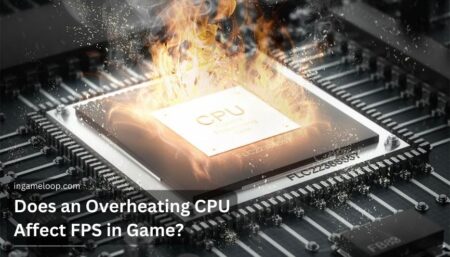![How Many CPU Cores Do I Need for Gaming? Explained [2024]](https://www.ingameloop.com/wp-content/uploads/How-many-CPU-Cores-do-i-Need-for-Gaming.jpg)
Choosing the best CPU for gaming is a relatively simple process. To determine the performance you may expect for the amount of money you’re willing to pay, you simply need to look at some performance benchmarks. CPUs, though, are a little bit of a different story. It is true that a CPU’s specifications also affect how well it performs, but still, there are several other factors to know better about the processor. Evaluating a CPU’s gaming performance can be challenging because it differs significantly from game to game and depends on the GPU it is paired with.
In order to have the best performance, choosing a CPU with adequate cores for gaming is a crucial step. Your FPS will increase as your processing speed does. However, a quick processor is not required for casual players. You don’t need a powerful CPU to get the most out of your games unless you intend to save a lot of content or play AAA games. However, the number of cores on a CPU is one feature that frequently stands out, so it’s essential to know how many CPU cores do I need for gaming. In this post, we are going to discuss this statement in detail.
Key Takeaways
- The number of CPU cores you need for gaming depends on the type of games you play, the resolution and settings you use, and the other tasks you run in the background.
- Most modern games can run well on a quad-core CPU, but some newer and more demanding games may benefit from a six-core or eight-core CPU.
- Higher core count does not always mean better performance, as some games may not utilize all the cores efficiently.
- You should also consider the clock speed, cache size and IPC (instructions per cycle) of a CPU, as they affect the gaming performance as well.
- You should balance your CPU with your GPU, RAM and storage to avoid bottlenecks and ensure a smooth gaming experience.
What is a CPU core?
Simply put, a CPU core is like a pathway via which the processor can perform certain operations. The number of cores, or how many jobs a CPU can execute simultaneously, is expressed in simple terms. Single-core CPUs weren’t able to multitask back then. Instead, they would quickly cycle between jobs of the highest priority. It goes without saying that the performance wasn’t remarkably fluid. This changed in 2005 when the first commercial dual-core CPUs were released, opening the door for additional multi-core processors.
Over the ensuing decade, CPUs with 4, 6, 8, and more cores quickly entered the market. In this way, the current-era processors come with a vast number of cores to be suitable for all types of users. In addition, multi-threading is another vital feature to support the cores’ performance and get the most out of the system. Nevertheless, even though multi-core CPUs can significantly increase multitasking and a variety of professional software, how much difference does a higher core count make when gaming?
How many CPU cores do I need for gaming?
For gaming, there must be at least six CPU cores for mid-tier builds to handle those hefty workloads and mediocre graphics resolution. But I suggest having 12-core CPUs, like AMD Ryzen 9 5950X or Intel Core i9-12900k, for those users who want to build a custom PC to play top-tier games at high-quality graphics resolution. On the flip side, if you’re thinking about a 4-core chip for current-era games, it will not make you happy or may reduce GPU overclocking performance. In short, any processor with 6-12 cores or more can suit the current-era gaming needs.
Single-core vs. Multi-core processors: what is the difference?
Having a CPU with a high core count in the past didn’t always mean much because many games weren’t designed to fully utilize many CPU cores. However, in recent years, we have seen a significant change in the situation in recent years. Since multi-core CPUs have been widely used for over a decade, it only seems sensible that game creators have started to utilize these CPUs’ capabilities effectively by tuning their games for multi-core speed. If you’re planning to purchase a high-core CPU, make sure to use its true potential.
| Parameter | Single-core | Multi-core |
| No. of cores | One primary core | Two or more separate cores |
| Processing | Sequential | Parallel |
| SMT | Not possible | Possible |
| Power | Low | High |
| Speed | Slow | Fast |
| Efficiency | Low | High |
| Operation | One task at a time | Multitasking |
For gaming, single-core performance is still more crucial than multi-core performance. Nevertheless, the core count shouldn’t be overlooked either because most games played today will eventually use several CPU cores. However, if we were to generalize, we’d say that choosing six CPU cores is the optimal compromise for gaming in 2022. The Intel Core i7-8700K or AMD Ryzen 5 5600X is the ideal CPU choice for most mid-range configurations. But you can even go for top-tier processors.
Logical vs. Physical Cores: what is the difference?
While we’re talking about CPU cores, we also need to talk about logical cores, or threads as they are more often known. A single physical core may handle two tasks at once, acting as two different logical cores, thanks to Intel’s hyperthreading and AMD’s multithreading technology. So, how useful are multithreading and hyperthreading? Without a doubt, the answer is yes. Multithreading is present in the majority of AMD’s Ryzen products, from entry-level to mid-range variants. Plus it’s very beneficial to get peak performance from any system. Multithreading, or Hyperthreading in Intel’s world, is also included in Intel’s various generations.
The Intel 10th-generation Comet Lake machines are a great example, though, to better compete with AMD in that regard. The precise in-game performance will obviously differ from game to game, even though a greater thread/core count aids in overall performance. It’s not a given that the Ryzen 5 5600X will perform better in games simply because it has 12 threads whereas the i7-8700K also has the same threads count. As we’ve previously stated, it largely depends on the game’s coding and the GPU in question. Therefore, you must remember all these facts before selecting a CPU by looking at its core and thread counts as well.
Bottlenecking
Bottlenecking is a topic we’ve already discussed, and you might be wondering what it implies. In short, you have a bottleneck if the CPU is too slow and cannot send instructions quickly enough, preventing the GPU from operating at its full potential. The same holds true when a powerful CPU like the i7-9700K is paired with a weaker, less expensive GPU like the GTX 1650 Super. In such a case, a more powerful CPU wouldn’t benefit your in-game performance, and you would have wasted your money. Make sure to prevent bottlenecks as much as possible.
Let’s take some examples of which processor can be paired with which graphics card to avoid bottlenecking!
| CPU | GPU |
| AMD Ryzen 3, or Intel Core i3 | Nvidia GTX 1650 Super or AMD Radeon RX 580 |
| AMD Ryzen 5, or Intel Core i5 | Nvidia Radeon RTX 2060 Super or AMD RX 5600 XT |
| AMD Ryzen 7, or Intel Core i7 | Nvidia RTX 2070 Super or RTX 2080 Super, |
In the end, it is impossible to predict with any degree of accuracy how much a given CPU would bottleneck a given GPU. Although they are far from being completely accurate, bottleneck calculators can give you a reasonable sense of what a good CPU/GPU combination would look like. With regard to the more potent Ryzen 9 or i9 CPUs, unless you want to use some CPU-intensive professional program or set up a multi-GPU system, they typically overkill for gaming PCs.
Conclusion
As you can see, the primary query does not have a clear-cut or straightforward solution. Dual-core CPUs were still usable in some builds up to a few years ago. But due to the quick rise in core and thread counts today, quad-cores are already close to becoming outdated. To sum up, in 2022, Hexa-core CPUs will frequently be your best pick for mid-range systems, while quad-core CPUs will typically only really cut it for budget designs. In the meantime, high-end PCs can use octa-core CPUs. But you must know your usage before purchasing a processor with certain cores.
Well, how many CPU cores are needed for gaming? I suggest having at least a six-core processor or more since gaming can be really taxing. The highest CPU performance is required for the games you play, even though video encoding might be distributed over several cores. For instance, certain games need top-notch graphics to run at the fastest frame rate possible. It’s always a good idea to seek some benchmarks because, as was noted in the post, those are simply generalizations, and the actual performance you get will vary from model to model.
Frequently Asked Questions
What is a good CPU core for gaming?
A processor with 6-12 CPU cores is considered suitable for gaming. But, only a higher core count doesn’t always boost the gaming performance. You have to look at good processor speed, too, along with a suitable core count.
Are more CPU cores better for gaming?
A processor with a higher core count performs well for gaming out of two with the identical rest of the specifications. Remember, we must also consider other factors like clock speeds, thread count, overclocking, etc., for better overall performance. Check this post, how CPU impacts gaming, to understand all these aspects.
Are 12 cores overkill for gaming?
No, 12 CPU cores aren’t overkilled for gaming if you put your processor into heavy-duty games or content creation. However, if you’re playing those games on a 12-core chip that could be played using a 6-core chip, it’s definitely overkill.





![Is an Intel Celeron Processor Good? [2024]](https://www.ingameloop.com/wp-content/uploads/Is-an-Intel-Celeron-Processor-Good-450x257.jpg)
